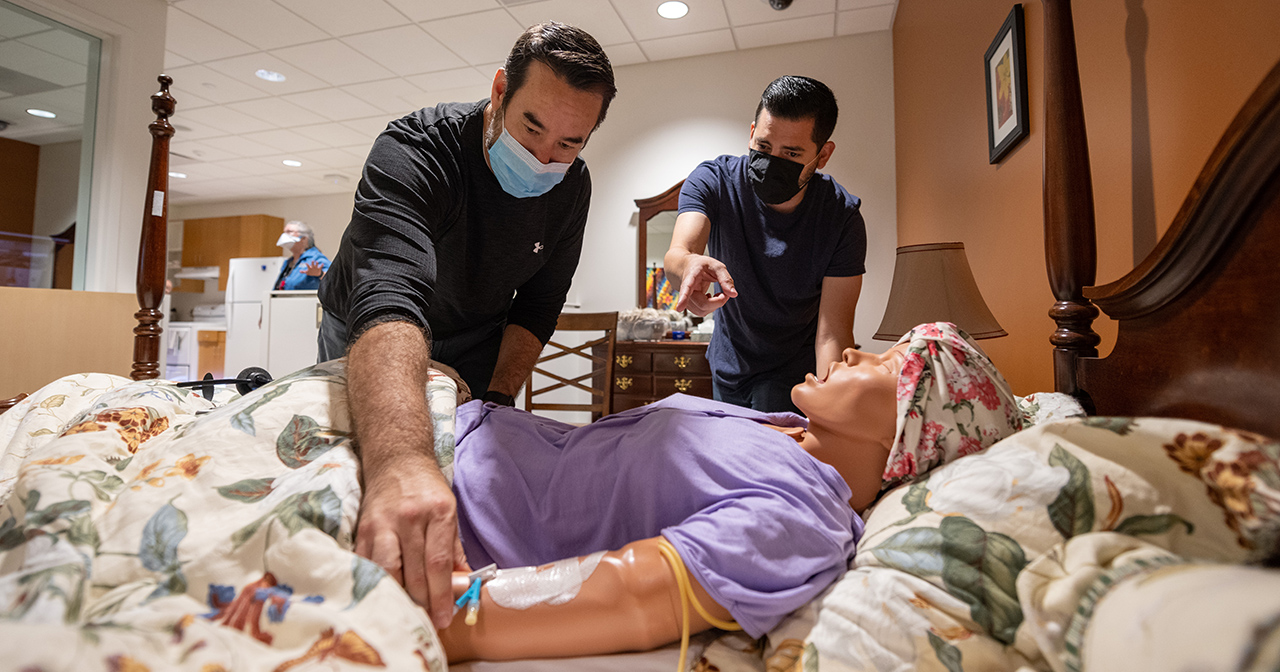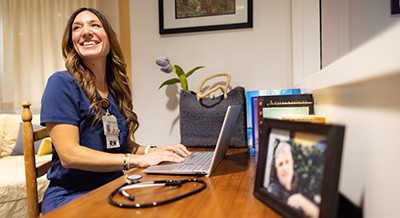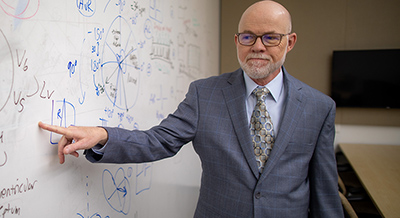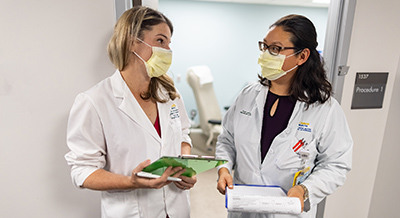65-year-old Julia Morales always believed in following your dreams and being true to yourself. She was shattered to learn she had lung cancer four years ago.
But after fighting the good fight, she decided to stop treatment and “just let go.”
Morales lost her fight, in the arms of her partner Lucy Gray, and in the presence of nursing graduate students at the Betty Irene Moore School of Nursing at UC Davis.
Morales and Gray are fictional, yet very lifelike, characters. And the future nurses caring for them in this end-of-life experience are part of a loosely scripted and well-choreographed simulation exercise.
“It’s rare that students experience a patient death in their clinical rotations. For most of us who are nurses and nursing faculty, our first patient death was when we were out in practice,” explains Shana Ruggenberg, director for the Master’s Entry Program in Nursing (M.E.P.N.) and facilitator in these simulations.
The Julia Morales simulation begins in the hospital ward simulation suite with an actor playing the role of Julia. It concludes in the bedroom of the apartment simulation suite with a high-fidelity manikin, which is programmed to exhibit the signs of dying.
Students, in pairs, after checking for the absence of heart activity, must inform Lucy that her partner passed.
“I had a lot of nerves going in. I wanted to be someone who could provide a therapeutic space for a person going through a difficult time,” explains entry-level nursing graduate Emily Boone. “There’s a reason I want to be a nurse, but after this experience, I’m more sure of my purpose.”
The patient and family member roles are typically played by paid actors who follow a detailed script. During COVID-19 restrictions, School of Nursing faculty and staff assumed the roles of the various characters. Megan Hansen, a communications specialist in the UC Davis Health Center for Simulation and Education Enhancement, portrayed Lucy, Julia’s partner. For Hansen, the end-of-life experience felt eerily familiar.
“Having been in a similar position with my grandmother, the tears easily flowed. I was so impressed by how the nursing students handled me and the situation,” she recalls. “These are the types of caring, emotionally intelligent and amazing nurses that we need in the world.”
This is one of two simulations in the fifth of the six-quarter program when students take both the Fostering Healthy Communities and Nursing Care of Older Adults courses. At this point, nursing students have enough clinical experience under their belts to bring that knowledge and experience to a complex set of scenarios.
“All of us were nervous, because we wanted to do well and not make a gaffe or say the wrong things,” says entry-level nursing student Quinn Dai La. “Ideally, we’ll pull these experiences and skills we’ve gained from these simulations and apply them to real life.”






